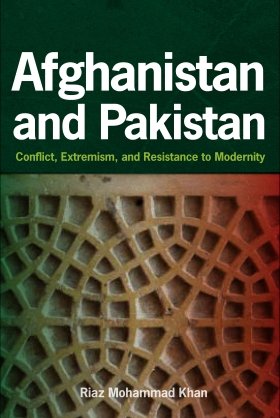Afghanistan and Pakistan: Conflict, Extremism, and Resistance to Modernity


-
This timely study surveys the conflict in Afghanistan from Pakistan’s point of view and analyzes the roots of Pakistan’s ambiguous policy—supporting the United States on one hand and showing empathy for the Afghan Taliban on the other. The author, a former foreign secretary of Pakistan, considers a broad range of events and interweaves his own experiences and perspectives into the larger narrative of the Afghanistan-Pakistan relationship.
Beginning with the 1989 departure of Soviet troops—and especially since the 2001 NATO invasion—Riaz Mohammad Khan examines the development of Afghanistan and surveys the interests of external powers both there and in Pakistan. He discusses the rise of extremism and religious militancy in Pakistan and its links with ongoing conflicts in Afghanistan. Ultimately, Khan argues, Pakistan reveals a deep confusion in its public discourse on issues of modernity and the challenges the country faces, an intellectual crisis that Pakistan must address to secure the country’s survival, progress, and constructive role in the region.
Riaz Mohammad Khan served as Pakistan’s Foreign Secretary (2005–8) and the country's ambassador to China (2002–5), the European Union and Belgium (1995–98), and Kazakhstan and Kyrgyzstan (1992–95). He is author of Untying the Afghan Knot: Negotiating Soviet Withdrawal and was the Woodrow Wilson Center’s Pakistan Scholar in 2009.
Author
Riaz Mohammad KhanFormer Pakistan Scholar;
Former Pakistani foreign secretaryIndo-Pacific Program
The Indo-Pacific Program promotes policy debate and intellectual discussions on US interests in the Asia-Pacific as well as political, economic, security, and social issues relating to the world’s most populous and economically dynamic region. Read more
Browse Insights & AnalysisExplore More
Browse Insights & Analysis
Iraq Should Consider Extending UNAMI’s Mission
Posted date/time:
Middle East Dialogue February 2025 Meeting Report
Posted date/time:

